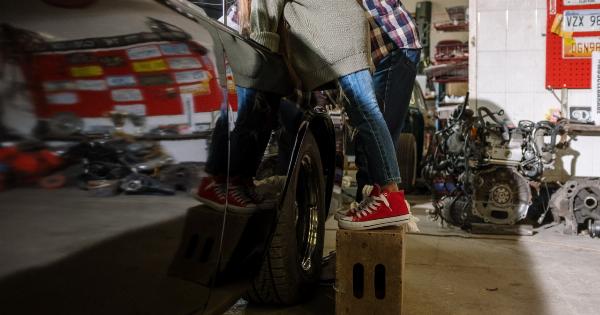Getting your first period is a significant event for any girl. It is a milestone that marks the beginning of puberty and the onset of menstruation.
While every girl experiences it differently, there are a few things that you can expect to happen when your daughter gets her first period.
What is a period?
A period, also known as menstruation, is the shedding of the lining of the uterus. It is a natural part of a woman’s menstrual cycle, which occurs every month.
The period typically lasts for three to seven days and is accompanied by other symptoms such as cramps, bloating, and mood swings.
When does menstruation start?
The age at which menstruation starts varies from girl to girl. However, most girls start their periods between the ages of 11 and 14.
It can be alarming for a young girl when she gets her first period and may require guidance and support from parents or guardians.
Preparing for your daughter’s first period
It can be helpful to prepare your daughter in advance for the onset of menstruation. You can start by explaining what to expect and providing her with information about periods.
It would help if you also discussed how to manage periods, including the use of pads, tampons, or menstrual cups. It is important to reassure her that getting her period is a normal process and that she can come to you anytime with questions or concerns.
Signs of menstruation
A few days before menstruation starts, a girl may experience premenstrual symptoms such as bloating, mood swings, and breast tenderness. When menstruation begins, she may notice a few signs such as:.
- Light spotting
- Discharge or staining in her underwear
- Mild cramps in the lower abdomen
What to do when menstruation starts
When your daughter gets her first period, she needs your support to navigate this unfamiliar territory. You can start by explaining to her how to use sanitary pads or tampons. Show her how to change them and dispose of them correctly.
You can also provide her with a period starter kit that contains sanitary products, wipes, and other essentials.
It would be best if you also encouraged her to keep track of her menstrual cycle to prepare for future periods. She can use a period tracker app or diary to monitor her menstrual cycle and symptoms.
This way, she can keep track of when her next period is due and make sure she has enough supplies.
Pain relief
Menstrual pain is prevalent, and some girls may experience cramps during their periods. As a parent or guardian, you can provide over-the-counter pain relief for your daughter, such as ibuprofen or acetaminophen.
Heat therapy can also be helpful, such as using a heating pad or taking a warm bath.
Maintaining hygiene during menstruation
It is essential to maintain good hygiene during menstruation to prevent infections and other complications. Encourage your daughter to change her sanitary products regularly and avoid using scented products that can irritate the vaginal area.
She should also keep her genital area clean and dry and avoid using harsh soaps or douching.
Dealing with embarrassment
For some girls, getting their first period can be embarrassing or uncomfortable. It can affect their self-esteem and social interactions.
As a parent, you can help your daughter feel comfortable by talking to her about her feelings and providing the necessary emotional support. You can also help her to practice good period hygiene and provide her with appropriate clothing such as dark-colored pants or shorts to minimize visible stains.
When to seek medical attention
While getting your first period is normal, some symptoms may indicate underlying health conditions that require medical attention.
If your daughter experiences heavy bleeding, severe pain, or any other unusual symptoms, it is essential to seek medical attention immediately.
Conclusion
The onset of menstruation can be both exciting and overwhelming for your daughter.
It is essential to help her manage this transitional period by being supportive, providing her with the necessary information and hygiene products, and ensuring good menstrual hygiene practices. With appropriate guidance, your daughter can navigate this journey with confidence and good health.































